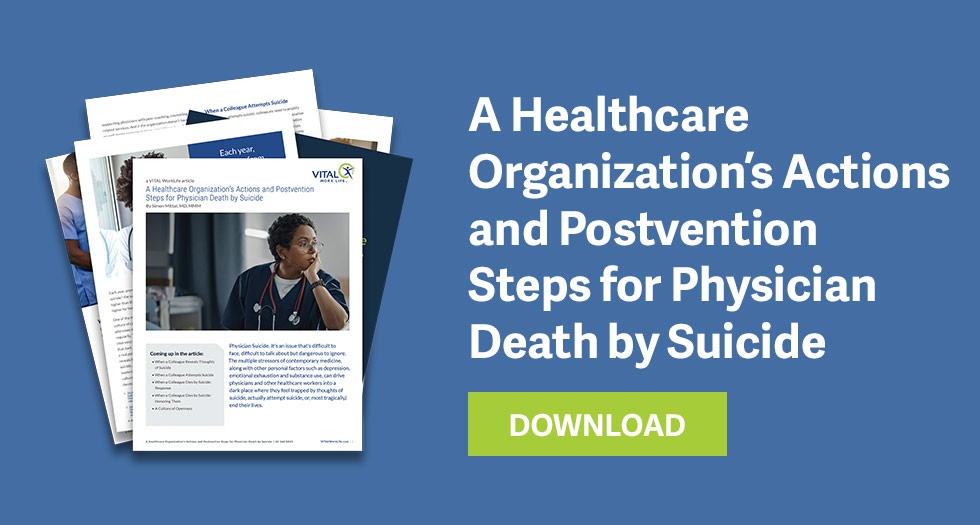We know the many pressures of contemporary medicine can erode the mental health of practitioners. The worst-case outcome can be suicidality—a physician or nurse thinking about ending their life, attempting to, or, worst of all, completing suicide. It's something organizations need to face with honesty, openness and responsiveness.

In my most recent article, I outline how colleagues and organizations can respond to those three elements of suicidality. There is a lot to think about and do when an organization is confronted with suicidal behavior, but I believe the only real mistake we can make is not to talk about the issue and its realities. And this means that we need to talk about it openly and transparently on an ongoing basis.
An Attentive Culture
By creating a culture that’s aware of suicide and attentive to the needs of physicians who may be at risk, interventions can come well before the ideation or the act. And a key component of that culture is colleagueship. A troubled physician’s colleagues are likely to be the first people in the organization to notice changes in their behavior that could foreshadow something deeper.
“We have to look at this as a whole community response rather than relying on the individual to get help for themselves,” Christine Moutier, MD, chief medical officer at the American Foundation for Suicide Prevention, tells interviewer Bridget M. Kuehn in the journal Circulation.
What Colleagues Can Do
When noticing a colleague in distress, Dr. Moutier says, you should “assume you’re the only one who is noticing and who is in a position to reach out.” She suggests setting up a time to talk informally over coffee. Be direct with your statement of concern, she recommends and adds that it’s okay to ask if the physician is feeling suicidal.
“Asking allows that relief of sharing, if they choose to share, that they’re having suicidal feelings and thoughts,” says Dr. Moutier. “It’s really about this active listening process where you just keep on following their lead and asking them to tell you more…These are temporary measures, but that’s because these crises will pass if they can live through that moment.”
The Circulation article links to a video made by the American Foundation for Suicide Prevention that walks physicians through supporting a colleague in crisis and is recommended for everyone working in healthcare.
To learn more about what your organization can do to help address physician suicide, read my article A Healthcare Organization's Actions and Postvention Steps for Physician's Death by Suicide.



